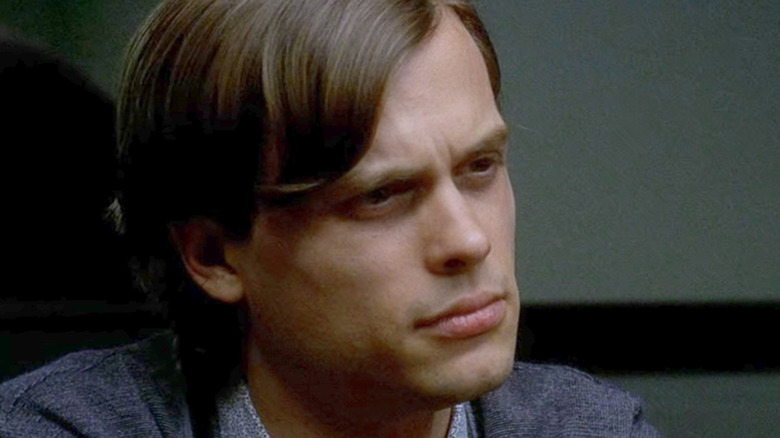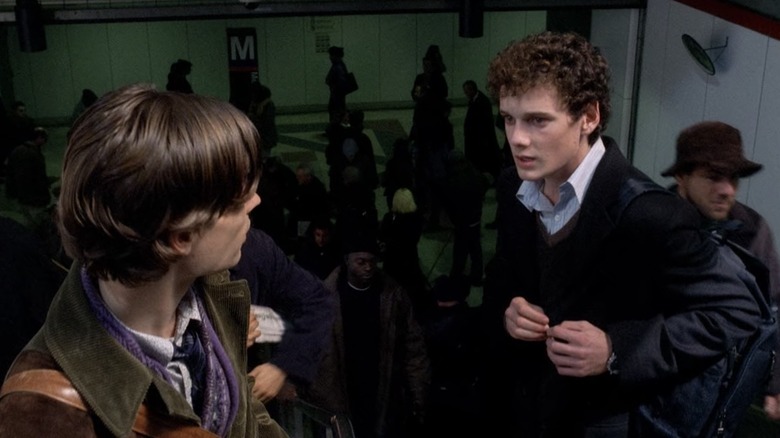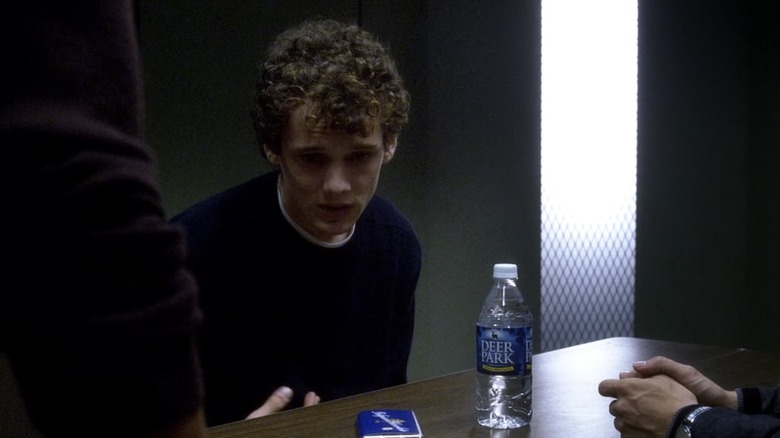The Reid Decision That Has Criminal Minds Fans Rewatching This Episode
From 2005 to 2020, "Criminal Minds" offered a stimulating look at the FBI's Behavioral Analysis Unit, a group of highly skilled profilers whose purpose is to stop "unsubs" in their weekly quest to get serial killers off the streets. Though the series aired its last episode back in February 2020, its presence on streaming services like Netflix means "Criminal Minds" can still offer old and new fans a comfortingly uniform, if somewhat gruesome, form of escapism.
There's never a need to justify returning to the formulaic yet suspenseful stories that make up this law-and-order procedural, but there's a moral dilemma in one specific episode that's giving some fans an excuse to come back in for a closer look. That episode is the 11th one from Season 2, entitled "Sex, Birth, Death," which features Dr. Spencer Reid (Matthew Gray Gubler) encountering a high school student struggling with feelings and fantasies that may lead him to a criminal future.
The episode focuses on a potential serial killer in the making
In the beginning of the episode, teenager Nathan Harris (played by the late Anton Yelchin) accosts Dr. Spencer Reid on the subway, saying he saw him at a Georgetown University lecture on sexual sadism and "thought [he] seemed cool." Nathan tells Reid he's interested in true crime and the nature versus nurture debate when it comes to criminal proclivities, and then asks about the motives of serial killers specifically in the deaths of sex workers. At that point, Reid clearly thinks the conversation seems off, and Nathan reveals some details of a murder that Reid says he's never seen before. Reid asks the boy if he wants to come to the BAU with him, scaring him off.
The conversation leads Reid and the team to discover that there's a serial killer at work stabbing and cutting off the hair of sex workers, and step one of the investigation is to locate this teenager who knows so much. Nathan hangs around the sex workers and admits during questioning to thinking about killing them — but his willingness to come in shows he's also looking for help. He's still with the BAU when another murder happens quickly afterward, so it's clear he isn't the killer they're looking for. However, a peek into Nathan's inner psyche and a formal psych evaluation shows he's struggling with some dark thoughts — and that it's more a matter of when he'll become a killer than if he will. Then, a third murder takes place.
Later in the episode, Reid saves Nathan's life, but what the evaluation has revealed about the teen has him wrestling with that decision. Nathan is innocent, at least right now, but he's likely a future serial killer. "He wanted me to let me to let him die," Reid says, then wonders, "How many lives did I risk in the future?"
Criminal Minds fans are thinking philosophically about this episode
The emotional impact of this "Criminal Minds" episode has people discussing the philosophical implications on Reddit.
User u/Angelkrista wondered about the gray area regarding Reid's live-saving actions: "[The team] saved the lives of unsubs numerous times throughout the show ... Isn't the natural rule of thumb to not punish someone for deeds not yet committed? Wouldn't it have been his moral obligation as someone that studied ideas behind morality, but also his sworn duty as an FBI agent to have done all he could?" They went on to speculate that the "moral" decision should have led to a conviction of doing right, and that was what was missing for Reid.
Redditor u/saturdaybloom weighed in, saying, "Reid did do all he could as he was bound, both by his duty and by his morals; he didn't let his apprehension stop him from doing so." The user also pointed out that the strengths of the episode included the connection between Nathan and Reid and "the whole question of whether we can overcome our nature or if we would inevitably succumb to it."
Another user, u/sofil__, wrote, "He saved the boy and probably would have saved him again and again. But Reid has a naturally broader view of the future. He knows very well that if something happened five, ten or twenty years later, he would feel partly responsible. I don't think he would ever have changed his mind about saving a life that was completely innocent up until then, but at the same time that kind of thinking is more than understandable. It is human to reevaluate our decisions based on what might happen."
Some users expressed dismay that Nathan's fate was never revealed in later episodes of "Criminal Minds," but one, u/Blitzerxyz, figured that innocence was bliss: "I'm glad there wasn't a follow-up episode. It allows us to think the best that he is doing fine and hasn't become a killer."


